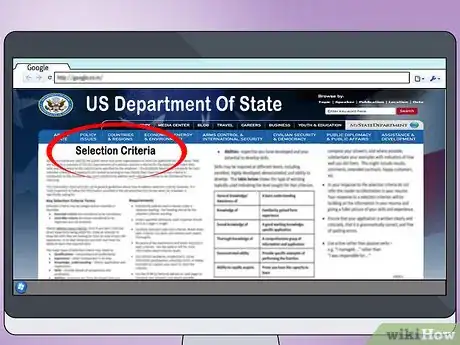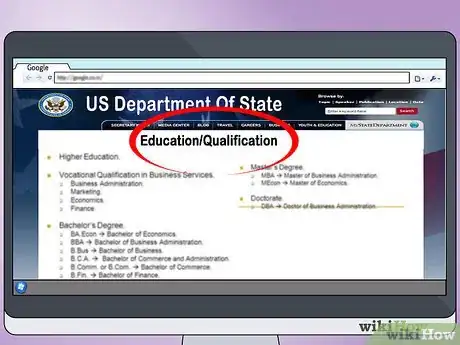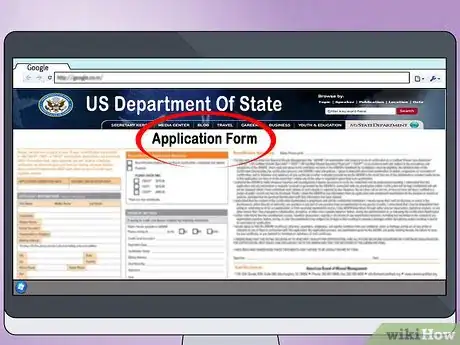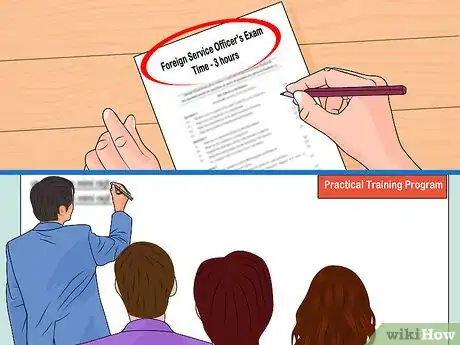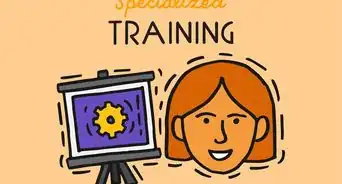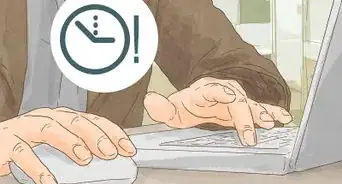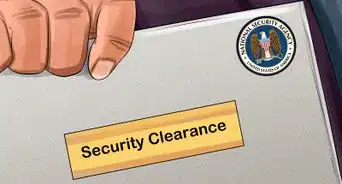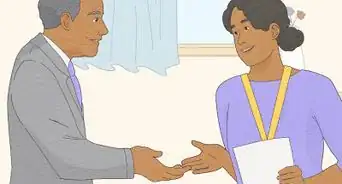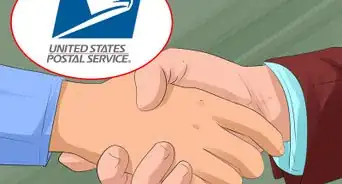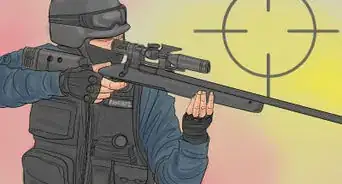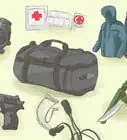wikiHow is a “wiki,” similar to Wikipedia, which means that many of our articles are co-written by multiple authors. To create this article, 19 people, some anonymous, worked to edit and improve it over time.
There are 10 references cited in this article, which can be found at the bottom of the page.
wikiHow marks an article as reader-approved once it receives enough positive feedback. In this case, several readers have written to tell us that this article was helpful to them, earning it our reader-approved status.
This article has been viewed 267,332 times.
Learn more...
Are you interested in a career that includes an excellent salary, extensive travel, meeting high-ranking dignitaries from around the world, and enjoying unique perks that other professionals would never imagine? Join the diplomatic service. The eligibility requirements for diplomats are universally stringent, but if you’re willing to devote many years to serious study and aren’t intimidated by the high level of competition, it's a career path that has many rewards. Here’s how you can get started.
Steps
-
1Find out the criteria to become a diplomat in your country. Contact the government agency that handles international relations. In the United States, it is the Department of State.[1] In France, it is the Ministry of Foreign Affairs.[2]
- Ask about educational requirements, like professional degrees, preferred fields of study and whether you must become proficient in other languages.
- Know about other qualifications, such as whether you must be a natural-born citizen and whether you must meet certain age requirements. For example, applicants in the United States must be between the ages of 21 and 59.
-
2Consider your personal qualifications.
- Assess your physical readiness. Diplomats must receive medical clearance so that they are able to travel broadly and live in areas with limited access to healthcare facilities.[3]
- Determine whether you would pass security clearance.[4] Governments perform background checks to confirm that applicants have no criminal background, are financially responsible and have not abused drugs or alcohol.
- Decide whether you possess the right temperament to relocate to any country your government sends you to and to uphold your government’s policies even though you may not agree with them.
- Reflect on your ability to speak effectively through an interpreter and your ability to negotiate and persuade without antagonizing others. Diplomats also must be able to adapt to living among people of diverse cultures.
Advertisement -
3Complete the necessary formal coursework at accredited schools. Universities in some countries offer special programs that prepare you to become a diplomat. Examples are the Woodrow Wilson School at Princeton University in the United States or the Department of Politics and International Relations at Oxford University in the United Kingdom.
-
4
-
5Pass the necessary written and oral exams.[7] While the particular exams vary according to the country, you should expect that you must demonstrate a high level of proficiency in the world and national history, political science, writing and current events.
- American citizens must first pass the Foreign Service Officer’s Exam, a written exam that usually lasts 3 hours. Applicants then sit for oral examinations that measure their personal aptitude to represent the United States government abroad.[8]
- Complete a practical training program. The governments of the United States, France and Great Britain all require that prospective diplomats complete further classroom study devoted to the principles of diplomacy. This training also requires them to make frequent trips to government offices where they learn how other branches of government function.
Community Q&A
-
QuestionWhat course do I have to take in university to become a diplomat?
 Community AnswerStudy international relations or political science.
Community AnswerStudy international relations or political science. -
QuestionCan I become a diplomat if I study history?
 Community AnswerYes, you can. A knowledge of history is a vital skill in politics/diplomacy as it will help you to understand the values of the country you are representing and the nation you are in negotiations with. For example, history might tell you that your country has helped theirs in the past or that you both share common goals. However, I would advise you to look into doing history and law or history and politics in college. Some colleges may also give you the option to pick up a European language with your course. This would be strongly recommend as it would give you an extra edge.
Community AnswerYes, you can. A knowledge of history is a vital skill in politics/diplomacy as it will help you to understand the values of the country you are representing and the nation you are in negotiations with. For example, history might tell you that your country has helped theirs in the past or that you both share common goals. However, I would advise you to look into doing history and law or history and politics in college. Some colleges may also give you the option to pick up a European language with your course. This would be strongly recommend as it would give you an extra edge. -
QuestionWhat does a diplomat do and why is it important?
 Community AnswerDiplomats represent their home country abroad. They may be in charge of making peace or trade agreements, meeting with foreign dignitaries, etc.
Community AnswerDiplomats represent their home country abroad. They may be in charge of making peace or trade agreements, meeting with foreign dignitaries, etc.
References
- ↑ https://careers.state.gov/work/foreign-service/officer/
- ↑ https://www.diplomatie.gouv.fr/en/
- ↑ https://2009-2017.state.gov/m/med/c35156.htm
- ↑ https://www.state.gov/security-clearances
- ↑ https://www.state.gov/
- ↑ https://www.gov.uk/government/organisations/foreign-commonwealth-development-office
- ↑ https://careers.state.gov/work/foreign-service/officer/test-process/
- ↑ https://careers.state.gov/wp-content/uploads/2019/05/Becoming-a-Foreign-Service-Officer-Specialist.pdf
- http://www.business-training-schools.com/a/how-do-i-become-a-diplomat.html
About This Article
To become a diplomat, work on developing excellent communication skills since diplomats need to be skilled negotiators and comfortable speaking through a translator. Also, make sure you're OK with relocating to any country your government sends you to. If that sounds like you, see if there are any specialized programs that prepare you to be a diplomat in your country. Also, focus on studying history, political science, and current events to better prepare you for the job. To learn how to find out the criteria for being a diplomat in your country, read on!
